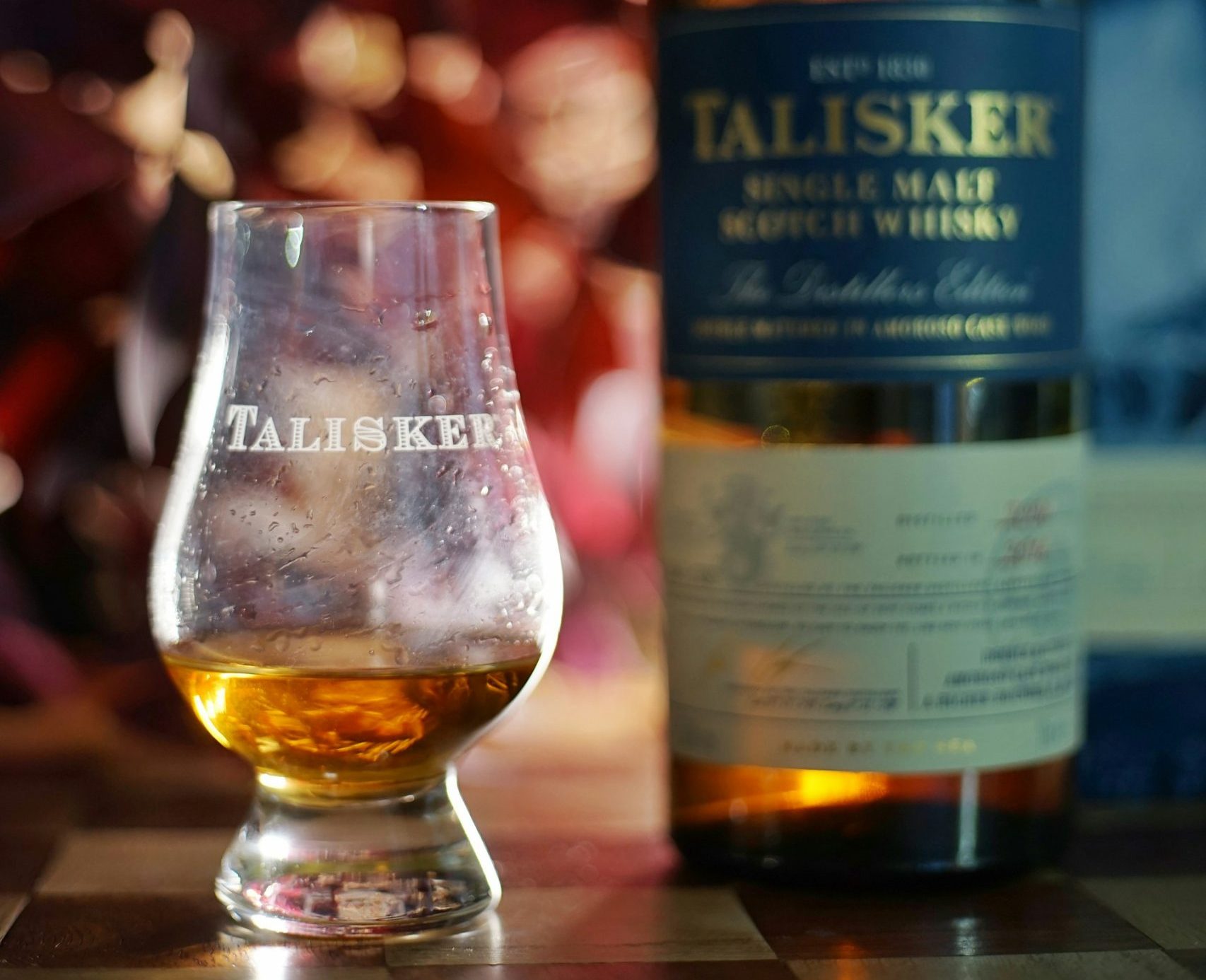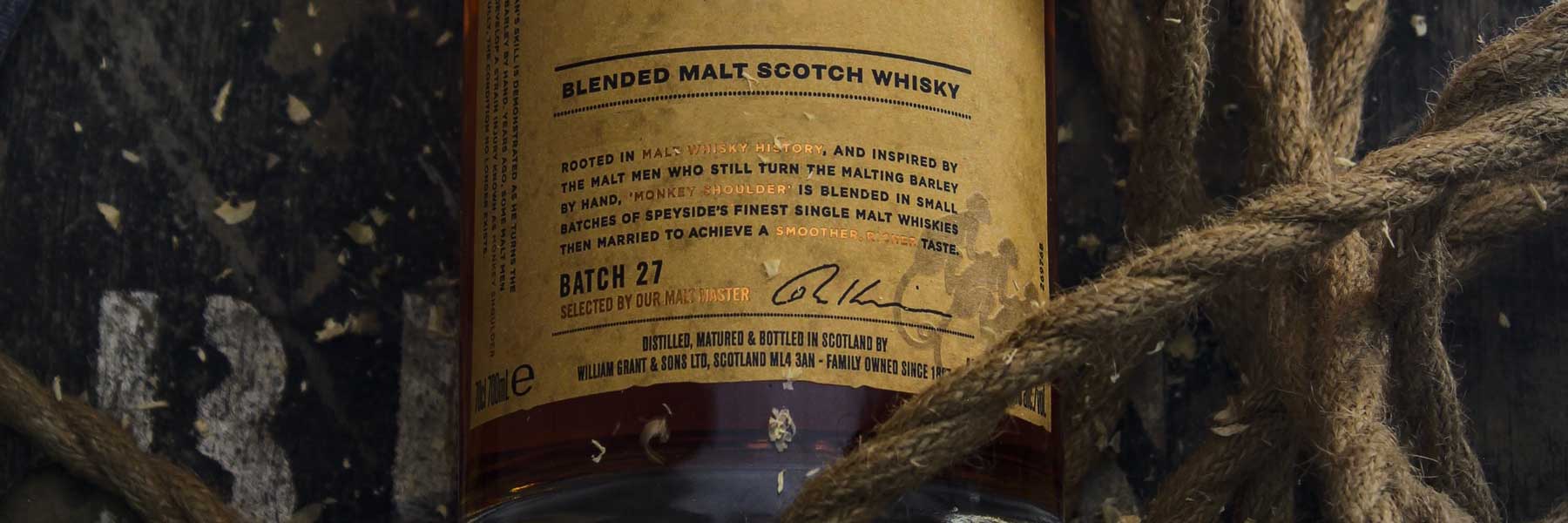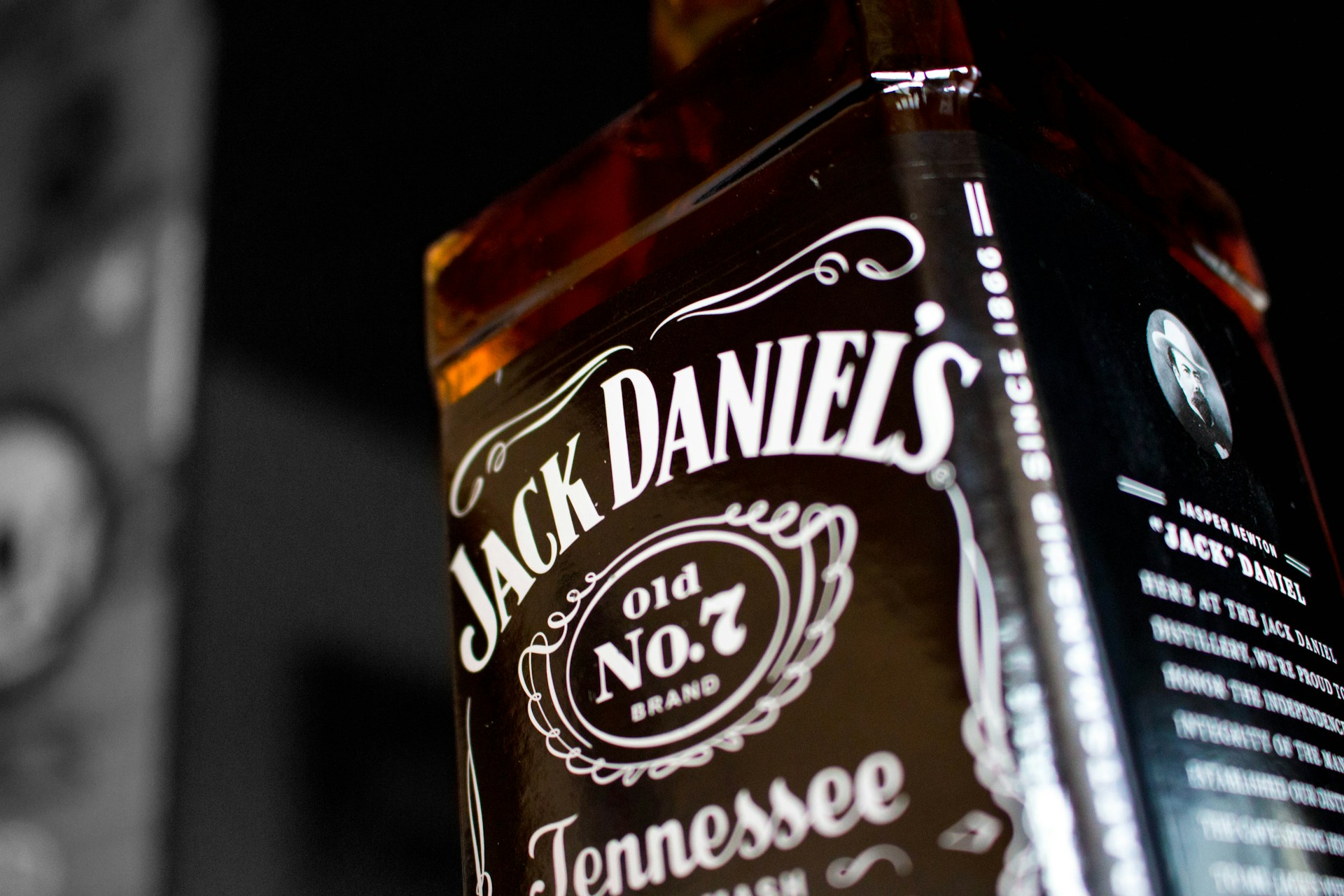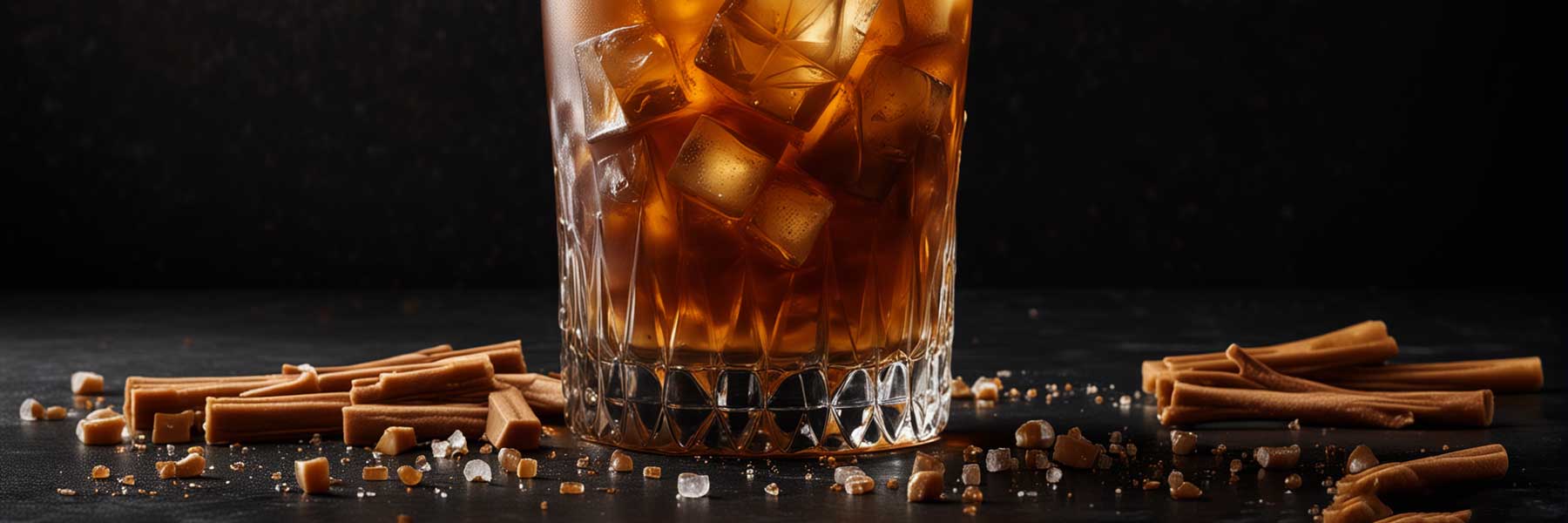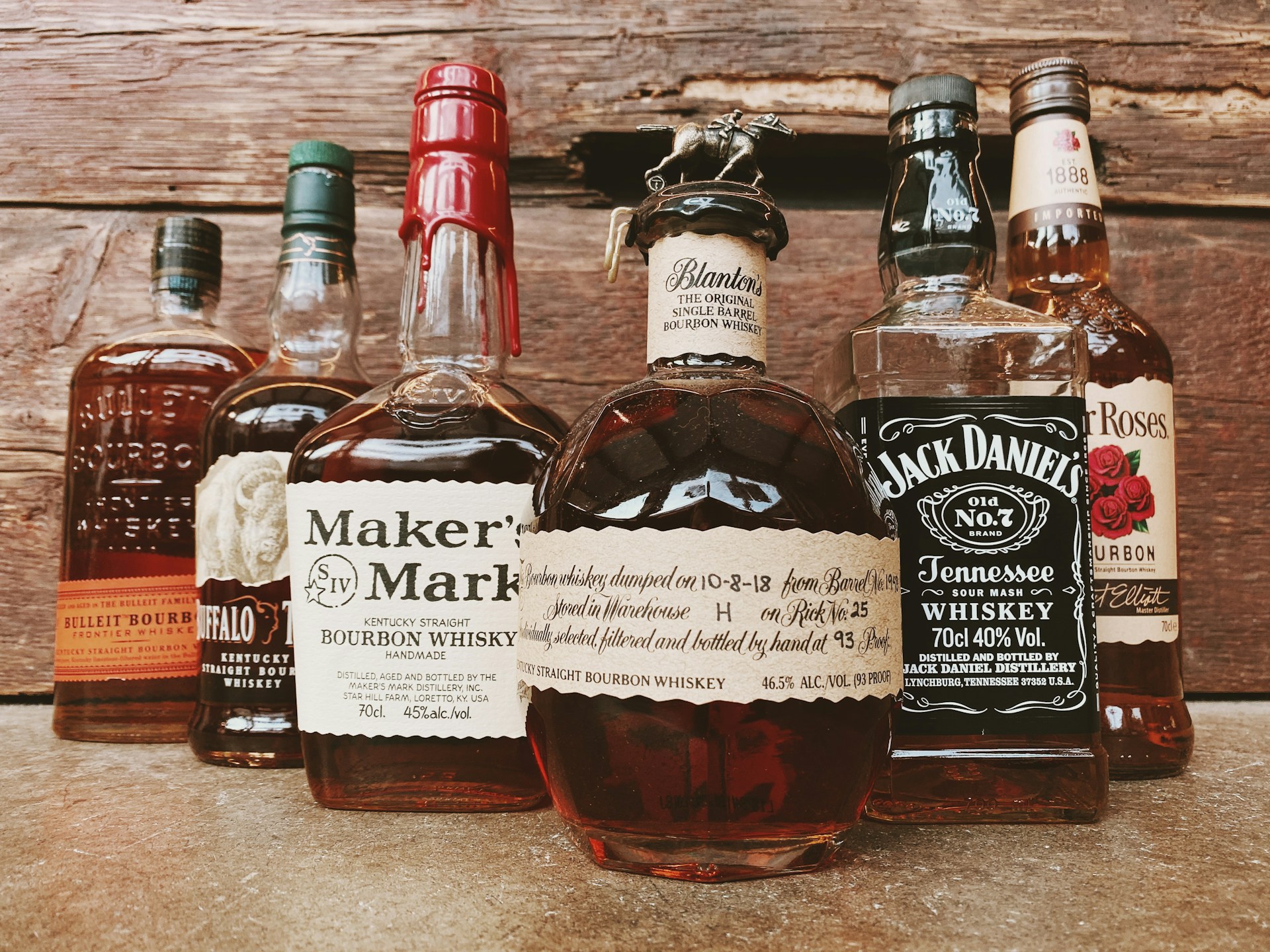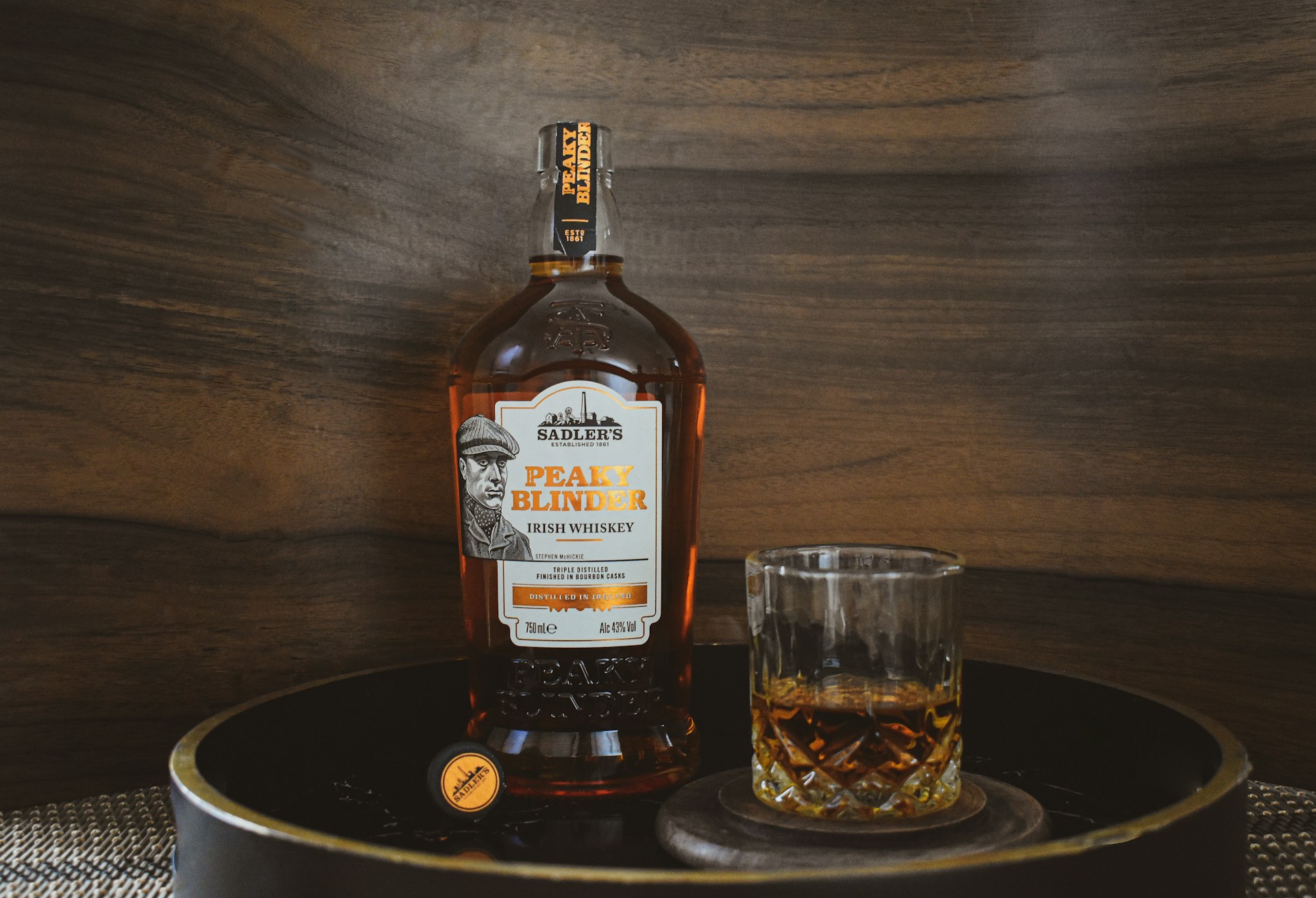What are Whiskey Stones, and Do They Work?
Last updated on November 13th, 2024
Imagine you’re cozied up in your favourite armchair, ready to pour yourself a dram of that special whisky you’ve been saving. But wait – do you take it neat, on the rocks, or maybe try those fancy whiskey stones you got as a gift last Christmas? If you’re scratching your head wondering what whiskey stones even are, or if they’re worth the hype, you’re in the right place.
What are Whiskey Stones?
Let’s start with the basics. Whiskey stones are small, typically cube-shaped pieces of non-porous stone or stainless steel designed to chill your whisky without diluting it. The idea is simple: you pop these little guys in the freezer for a few hours, then plop them into your glass of whisky instead of ice cubes. Voila! Chilled whisky without the melt.

Whiskey Stones Come in Various Materials:
- Soapstone: The original and most common material. It’s soft enough not to scratch your glasses but dense enough to hold temperature well.
- Granite: Harder than soapstone, it can hold temperature for longer but might be a bit rough on your glassware.
- Stainless Steel: Not actually stone, but metal cubes filled with a cooling gel. They tend to chill more effectively than stone.
- Marble: A newer option that offers a balance between cooling efficiency and aesthetic appeal.
The History of Whiskey Stones
While whiskey stones as we know them today are a relatively modern invention, the idea of cooling drinks with stones has been around for centuries. In fact, the concept dates back to the Scandinavian tradition of using “sauna stones” to cool drinks after a hot sauna session.
The modern whiskey stone was invented by Teroforma in 2007. Andrew Hellman, the founder, came up with the idea while exploring the concept of “small luxuries” – items that enhance everyday experiences. He collaborated with a mason in Perkinsville, Vermont, to create the first set of soapstone whiskey stones.
The idea quickly caught on, appealing to whisky enthusiasts who wanted to chill their drinks without dilution. Soon, other materials like granite and stainless steel were introduced, each offering their own benefits and drawbacks.
How Do Whiskey Stones Work?
The principle behind whiskey stones is straightforward thermodynamics. When you pop a frozen stone into your drink, heat transfers from the warmer liquid to the colder stone, cooling your whisky in the process. Unlike ice, which melts and dilutes your drink as it cools, whiskey stones maintain their solid form, theoretically giving you the chill without the water.
Sounds perfect, right? Well, hold onto your glasses, because we’re about to dive into whether they actually deliver on this promise.
The Science Behind Whiskey Stones
To understand why whiskey stones work (or don’t work) as well as they do, we need to delve a bit into the science of heat transfer and specific heat capacity.
Specific heat capacity is the amount of heat energy required to raise the temperature of one gram of a substance by one degree Celsius. Water has a high specific heat capacity, which means it can absorb a lot of heat energy before its temperature rises significantly. This is why ice is so effective at cooling drinks – it absorbs a lot of heat as it melts.
Stone and steel, on the other hand, have lower specific heat capacities. This means they can’t absorb as much heat from your whisky before their temperature starts to rise. As a result, they cool your drink less effectively than ice.
Moreover, the phase change that ice undergoes (from solid to liquid) absorbs even more heat energy, known as the latent heat of fusion. Whiskey stones don’t undergo this phase change, further limiting their cooling power.
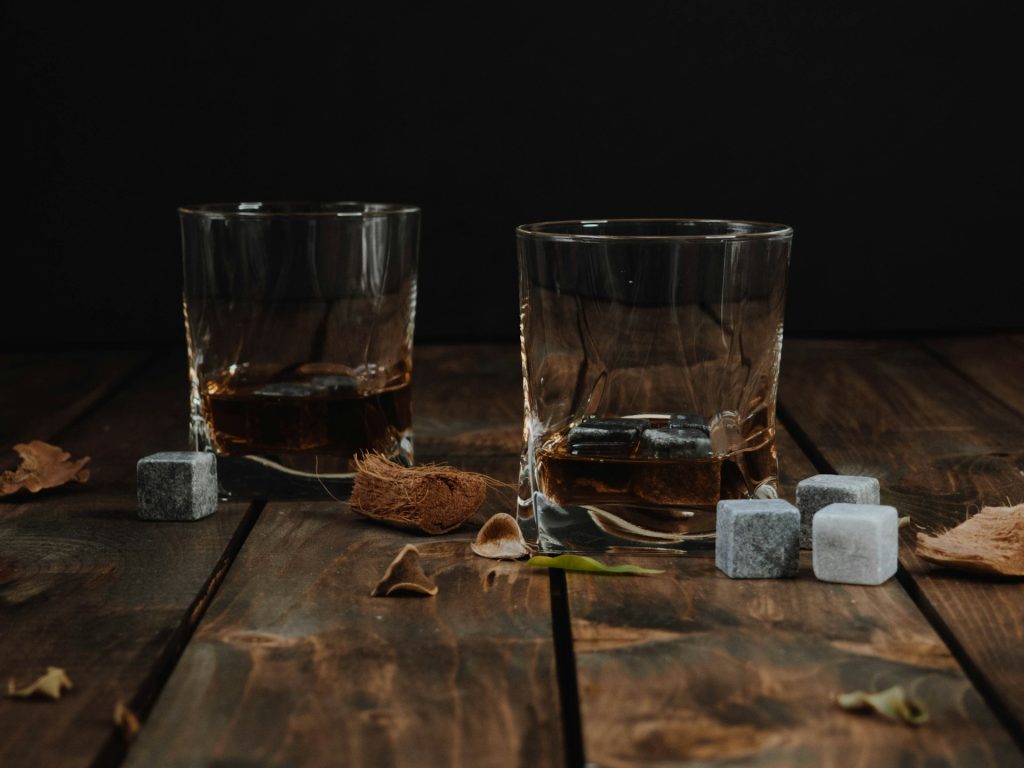
Do Whiskey Stones Actually Work?
Ah, the million-dollar question. Do these little rocks really do what they claim? The answer, like many things in the whisky world, is a bit nuanced.
The Good
- No Dilution: This is the big selling point. Whiskey stones don’t melt, so they won’t water down your carefully crafted spirit.
- Temperature Control: You have more control over how cold your whisky gets. With ice, it’s a race against time as it melts and chills simultaneously.
- Reusability: Unlike ice, you can use whiskey stones over and over again. Just rinse, dry, and pop them back in the freezer.
- Aesthetics: Let’s be honest, they look pretty cool clinking around in your glass.
The Not-So-Good
- Limited Cooling Power: Here’s the kicker – whiskey stones don’t chill your drink as effectively as ice. They’ll lower the temperature a bit, but don’t expect your whisky to get as cold as it would with a few ice cubes.
- Short-Lived Effect: Because they have less cooling power, the chilling effect of whiskey stones doesn’t last as long as ice.
- Potential for Chips or Scratches: While unlikely with proper use, there’s always a small risk of chipping your glass or the stones themselves.
- Cleaning Hassle: You need to clean and dry the stones after each use to maintain hygiene and prevent odors.
The Great Dilution Debate
Now, here’s where things get interesting. The whole premise of whiskey stones is based on the idea that dilution is bad. But is it really?
Many whisky experts actually advocate for a splash of water in your dram. A few drops can “open up” the whisky, releasing hidden flavors and aromas. Ice, as it melts, provides this gradual dilution, which can enhance your tasting experience over time.
Moreover, some whiskies, especially those bottled at higher proofs, benefit from a bit of dilution to take the edge off the alcohol burn and reveal more subtle notes.
So while whiskey stones prevent dilution, that might not always be what you want. It really depends on the whisky and your personal preferences.
The Chemistry of Dilution
To understand why a little water can enhance your whisky, we need to look at the chemistry involved. Whisky contains a complex mix of compounds, including ethanol, water, and various flavor molecules. Some of these flavor compounds are hydrophobic, meaning they don’t mix well with water.
When you add a small amount of water to whisky, it changes the balance of these compounds. The addition of water can cause some of the hydrophobic compounds to cluster together and rise to the surface of the liquid. This process, known as the “Ouzo effect” (named after the Greek aperitif), can release new aromas and flavors that were previously masked by the alcohol.
Furthermore, dilution can lower the alcohol by volume (ABV) of the whisky. High alcohol content can numb your taste buds, making it harder to perceive subtle flavors. By lowering the ABV slightly, you might actually taste more of your whisky’s complex flavor profile.
Alternatives to Whiskey Stones
If you’re not sold on whiskey stones, don’t worry. There are plenty of other options for chilling your whisky:
- Large Ice Spheres or Cubes: These melt slower than regular ice cubes, providing a happy medium between chilling and controlled dilution.
- Chilled Glasses: Pop your glasses in the fridge for a while before pouring. This chills the whisky without any additions.
- Whisky in the Fridge: Some folks like to keep their bottles chilled. Just be aware that very cold temperatures can mute some flavors.
- Metal Chillers: Similar to whiskey stones but made entirely of stainless steel. They tend to be more effective at cooling.
- The Neat Method: Many whisky enthusiasts prefer their dram at room temperature to fully appreciate all the flavors and aromas.
How to Use Whiskey Stones (If You Choose To)
If you decide to give whiskey stones a go, here’s how to use them effectively:
- Freeze Them: Place the stones in the freezer for at least 4 hours before use.
- Don’t Overdo It: 2-3 stones per glass is usually sufficient.
- Add Whisky First: Pour your whisky, then add the stones to prevent splashing.
- Give It a Minute: Let the stones work their magic for about a minute before sipping.
- Clean Properly: After use, wash the stones with warm water (no soap), dry thoroughly, and return to the freezer.
Whiskey Stone Maintenance
Proper care of your whiskey stones is crucial not only for hygiene but also to maintain their effectiveness and longevity. Here are some tips:
- Regular Cleaning: Rinse your stones with warm water after each use. For a deeper clean, you can use a mild dish soap occasionally, but be sure to rinse thoroughly.
- Drying: Always dry your stones completely before returning them to the freezer. Moisture can lead to odors or even mold growth.
- Storage: Store your whiskey stones in a clean, dry place when not in use. Many sets come with a storage pouch, which is ideal.
- Freezer Care: Keep your stones in a sealed container in the freezer to prevent them from absorbing freezer odors.
- Inspection: Regularly check your stones for any signs of wear, cracks, or chips. If you notice any damage, it’s best to replace the stone.
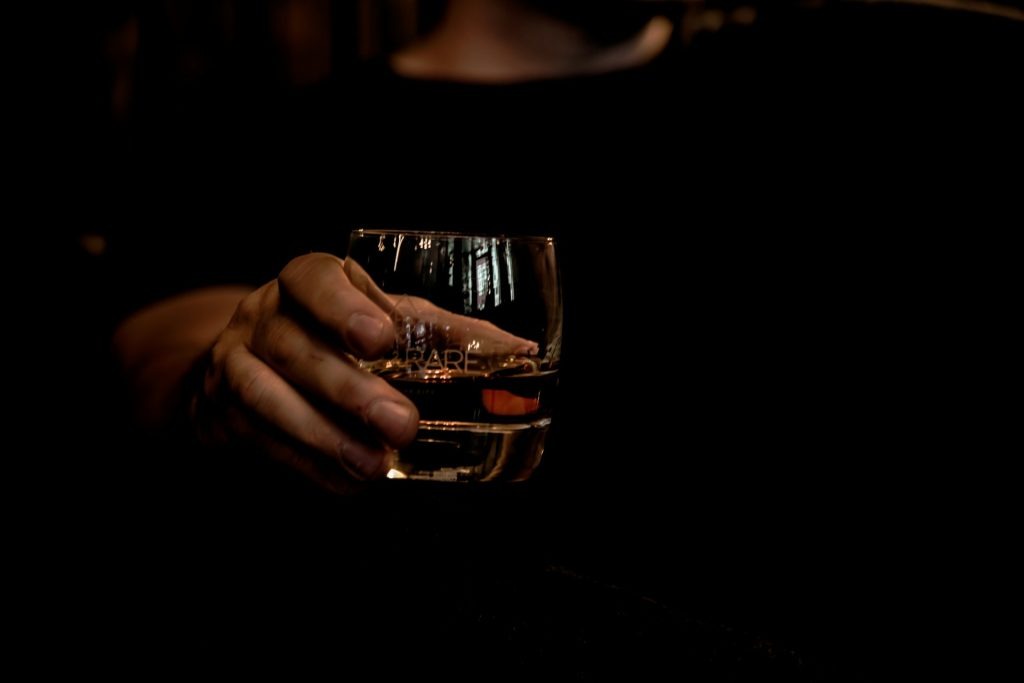
The Verdict: Are Whiskey Stones Worth It?
After all this, you might be wondering if whiskey stones are worth the investment. Here’s my take:
Whiskey stones can be a fun addition to your whisky experience, especially if you enjoy your dram lightly chilled but not diluted. They’re also a neat conversation piece and can make for a great gift.
However, if you’re expecting them to revolutionize your whisky drinking or provide ice-cold spirits, you might be disappointed. They’re more of a subtle tool than a game-changer.
Ultimately, the “worth” of whiskey stones depends on your personal preferences. If you enjoy experimenting with different ways to enjoy your whisky, give them a shot. But if you’re happy with your current sipping style, whether that’s neat, on the rocks, or with a splash of water, there’s no need to fix what isn’t broken.
The Whisky Stone Controversy
Believe it or not, there’s actually a bit of controversy in the whisky world about these little cubes. Some purists argue that anything that alters the temperature of the whisky is sacrilege. They believe that whisky should be enjoyed at room temperature to fully appreciate its complexities.
On the flip side, proponents of whiskey stones argue that a slight chill can be pleasant, especially for high-proof whiskies, and that stones offer this without the dilution of ice.
My take? Whisky is meant to be enjoyed, and everyone’s palate is different. If whiskey stones enhance your experience, go for it. If not, there’s no shame in sticking to your preferred method.
Environmental Considerations
In our increasingly eco-conscious world, it’s worth considering the environmental impact of whiskey stones. On one hand, they’re reusable, which could be seen as more environmentally friendly than constantly making ice. On the other hand, they’re often made from mined materials and may be shipped long distances.
If environmental impact is a concern for you, consider the source of your whiskey stones. Look for those made from recycled materials or produced locally. And remember, the most eco-friendly option is often the simplest – enjoying your whisky neat at room temperature.
FAQs
1. Can whiskey stones make my drink as cold as ice does?
Not quite. Whiskey stones will chill your drink, but they won’t make it as cold as ice would.
2. Are whiskey stones safe to use?
Yes, when used properly. Just be gentle to avoid chipping your glass.
3. How long do whiskey stones stay cold?
They typically stay cold for about 30 minutes, though this can vary based on the material and room temperature.
4. Can I use whiskey stones in drinks other than whisky?
Absolutely! They work in any drink you’d like chilled without dilution.
5. How often should I replace my whiskey stones?
With proper care, whiskey stones can last for years. Replace them if they develop cracks or start to smell odd.
6. Do whiskey stones affect the taste of my whisky?
They shouldn’t. Unlike ice, which adds water and can change the flavor profile, whiskey stones are non-porous and shouldn’t impart any flavor.
Conclusion: The Verdict on Whiskey Stones
Whiskey stones offer a novel way to chill your drink without dilution, appealing to purists who want to preserve their spirit’s flavor profile. However, their cooling effectiveness is limited compared to ice. For casual drinkers, the difference may be negligible, but connoisseurs might find them lacking. Ultimately, whether whiskey stones “work” depends on personal preference.


